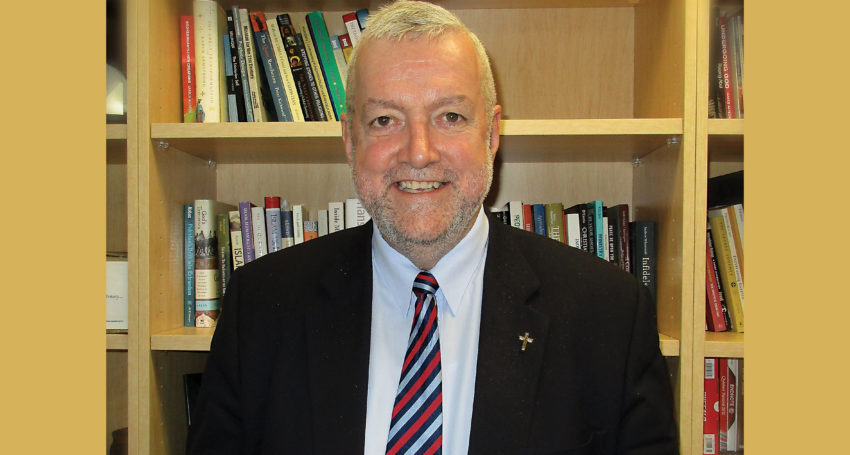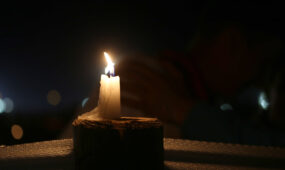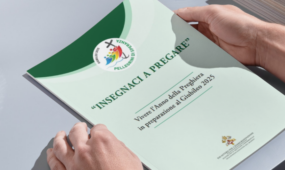Keeping watch on Afghanistan
International
As the world watches events unfold in Afghanistan following the withdrawal of US and allied troops, The Southern Cross sought to gain a deeper understanding of the circumstances surrounding the rise of the Taliban by speaking to SA priest Fr Patrick McInerney SSC, director of the Columban Centre for Christian-Muslim Relations.

The western world has been hearing about the Taliban for more than 20 years but what do we really know about their ideology and religious beliefs? What is their connection with al-Qaeda?
The Taliban emerged in 1989 following the civil war that erupted in Afghanistan after the withdrawal of Soviet forces. They were mostly ethnic Pashtun (the word ‘Taliban’ means ‘students’) from madrassas or Islamic schools in the northwest of Pakistan which taught a strict Deobandi form of Islam originating in Deoband, India, in 1867. In the 1980s these schools were influenced by Wahhabism from Saudi Arabia. Their religious ethos attracted young Afghani refugees who were formed as mujahideen to fight against the Soviets.
Advertisement
In the civil war that erupted after the withdrawal of the Soviets, the Taliban were initially welcomed as they promised to end corruption and fighting. By 1998 they controlled most of the country and imposed their strict interpretation of sharia which caused them to be reviled around the world.
Al-Qaeda was one of the international jihadist organisations supported by the USA in the fight against the Russians. They followed the strict Wahhabi form of Islam from Saudi Arabia and wanted to promote their ideology internationally. When in power, the Taliban formed a pact with al-Qaeda, providing them sanctuary to carry out their jihadist training. After the 2001 terrorist attacks, the USA demanded the Taliban hand Osama bin Laden over. In accord with the Pashtun honour code, the Taliban honoured their pact and refused to surrender him. The USA and its allies then invaded to topple the Taliban government, to find and kill bin Laden, and to establish a democratic government in Afghanistan.
While the ideology of the Taliban and al-Qaeda is similar, the Taliban seek Islamic rule only in Afghanistan, while al-Qaeda has international ambitions. There are factions among both the Taliban and al-Qaeda. Islamic State split from al-Qaeda over issues of leadership, authority and strategy in Iraq. It was Islamic State Khorasan (ISIS-K), an affiliate group in Afghanistan, that carried out the recent bombing at the Kabul airport which indiscriminately targeted Americans, Taliban fighters and Afghan citizens.
Is the Talban’s discrimination against the Hazara people purely religious-based?
Afghanistan is a patchwork of ethno-linguistic tribal groups including Pushtoon, Tajik, Hazara, Uzbek, Baloch and others. The Taliban are mostly Pushtoon and Sunni. The ethnic Hazara are mostly Shia. The rigid Sunni Islamist ideology of the Taliban has little or no tolerance for other forms of Islam, let alone other religions.
How does the Taliban justify their acts of violence and repression with the teachings of Islam?
The Taliban follow a strict Deobandi form of Islam that emerged in the sub-continent as an anti-colonial movement aimed at the renewal of Islam, later mixed with Wahhabi strains from Saudi Arabia. The regime that the Taliban imposed in Afghanistan in the 1990s followed a literalist form of sharia, including stoning of adulterers, amputating the hands of thieves, and repression of women and girls. Most Muslims around the world, along with all people of goodwill, were repulsed by the Taliban’s barbarous regime. It is fear of that former regime being replicated and fear of reprisals against those who cooperated with the international armed forces and other agencies which motivated many Afghans to seek to escape the return of Taliban rule in Afghanistan, and why the world is so concerned.
While the Taliban may have sympathy from similar-minded jihadists in other countries, the vast majority of Muslims – imams, academics, scholars and ordinary believers – repudiate the ideological version of Islam implemented by the Taliban. Muslim jurists through the ages have always insisted on interpreting the law in the light of current circumstances, not just following a literal application of ancient texts, and Muslim believers follow a range of traditions and schools of interpretation.
Advertisement
Are there any signs that the Taliban will be different this time around?
The Taliban claim they have changed, that there will be no reprisals, that people need have no fear. However, they have also stated that they will rule according to sharia. It is too early to predict what will happen. Which factions among the Taliban will prevail? How effectively will they be able to control the tribal and ethnic patchwork of Afghani society? What precise form of sharia will they promote? What price will they pay for getting the international recognition they crave? Negotiating all these pressures will necessarily require compromise and moderating their more extreme elements.
However, there are already alarming reports coming out of Afghanistan of Taliban animosity towards ethnic and minority groups and restrictions on women. It is right to be cautious until the situation becomes clearer.
What is the difference between cultural and religious practices for Muslims?
Every religion is embedded in culture. Each religion gets embedded in different cultures in slightly different ways. Sometimes a religion is so identified with a culture that it is difficult to separate what is religion and what is culture. This is true of Christianity, of Islam, of every religion. Christian missionaries have sometimes unwittingly spread cultural practices thinking they were preaching the Gospel. Similarly, Muslim preachers have sometimes promoted cultural practices in the name of Islam. For example, the Quran enjoins modest dress for both men and women, but just how that value is expressed varies in different cultures. The ultimate test for what is truly from God is that which serves the common good and leads to human and planetary flourishing.
Is there a risk of more jihadist attacks around the world as a result of the Taliban taking control of much of Afghanistan?
There are some Muslims who see the return of the Taliban as a victory for Islam. There is no doubt that their defeat of a super-power has heartened jihadist groups in other parts of the world. However, the majority of Muslims repudiate the harsh, ideological, literalist form of Islam that the Taliban imposed in their previous rule.
How can interreligious dialogue help?
Interreligious dialogue is more important than ever. To the extent that the Taliban implement a harsh regime as in the past, there will be a wave of revulsion against Islam and Muslims around the world, creating a tsunami of islamophobia. Interreligious dialogue will reassure people that the majority of Muslims repudiate extremist, ideological forms of Islam, that they promote justice, human rights, respect for women, mercy and compassion; that we share much in common.
Getting to know Muslims through personal encounter is the best antidote to media-generated stereotypes, especially when they report repeatedly on extremist modes of Islam that do not represent the vast majority of Muslims.
What can countries like Australia do to help?
What we can do to help is to support Afghani refugees living among us, to advocate for an increase of refugee intake from Afghanistan, to support agencies providing humanitarian aid to the long-suffering people of Afghanistan, and to ask our government and international organisations to exert pressure on the Taliban to ensure the rights and protection of all people of Afghanistan, especially the ethnic and religious minorities, and women and children.
Fr McInerney was born in Riverton, SA. A Columban missionary priest, he lived in Pakistan from 1979 to 2000. He has a licentiate from the Pontifical Institute for the Study of Arabic and Islamics in Rome (1986), a Masters in Theology from the Melbourne College of Divinity (2003), and a PhD from the Australian Catholic University (2009). He now lives in Sydney.







Comments
Show comments Hide comments